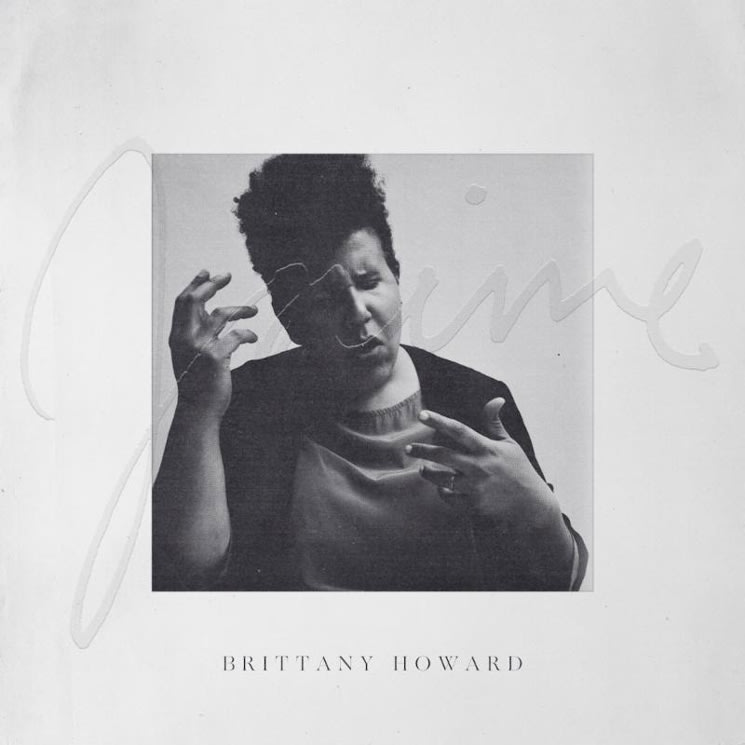No one ever accused Alabama Shakes of being too limiting for Brittany Howard — the band's Southern-fried blues-rock sound has been the perfect fit for her soulful howl thus far, a winning combination that earned the outfit critical acclaim, Grammy Awards and coveted performance slots on Saturday Night Live.
But Jaime, Howard's first solo album, complements her distinctive croon with R&B, hip-hop and funk sounds, marking an adventurous departure that reveals unseen depths to the vocalist. With some of the most emotive, direct lyrics of her career to date, the dynamic range of her new collaborators — including jazz maestro Robert Glasper — informs the flavour of each track for an eclectic collection stockpiled with loose grooves. It showcases no small number of distinct ideas, fully executed with Howard's show-stopping vocals on top, staking her claim as a voice for a generation.
Sure, there's incisive political commentary — most arrestingly on late-album cut "Goathead," in which Howard tells the story of a hate crime committed against her father over a spare, looping beat as she discusses growing up mixed-race in Alabama — but the album also finds plenty of power when it chooses to uplift, providing solutions for these divisive political times in the form of radical self-acceptance.
With queer love anthems ("Georgia"), postmodern spirituals ("He Loves Me," "Tomorrow") and avant-jazz mission statements ("13th Century Metal"), Howard envisions a more inclusive, empowered and engaged world, one where by acknowledging society's failures at large, everyone can move forward. Jaime uses its impressively varied cache of impeccably realized musical ideas as its means to tackle its vast subject matter with meticulous curation — it races through its 11 tracks in a scant 35 minutes, and its tight pacing ensures no idea is overindulged or brushed over.
Despite the P-Funk grooves of opener "History Repeats," the central phrase of "History repeats and we defeat ourselves, come on everybody one more time again" is a deceptively dour indictment of humanity's inability to move on from its central conflicts. But by drawing attention to society's weak spots through simple, strong storytelling, Jaime attempts to break the cycle, moving toward a better future. Howard clearly believes it to be possible — and after listening to Jaime, it's hard not to, as well.
(ATO Records)But Jaime, Howard's first solo album, complements her distinctive croon with R&B, hip-hop and funk sounds, marking an adventurous departure that reveals unseen depths to the vocalist. With some of the most emotive, direct lyrics of her career to date, the dynamic range of her new collaborators — including jazz maestro Robert Glasper — informs the flavour of each track for an eclectic collection stockpiled with loose grooves. It showcases no small number of distinct ideas, fully executed with Howard's show-stopping vocals on top, staking her claim as a voice for a generation.
Sure, there's incisive political commentary — most arrestingly on late-album cut "Goathead," in which Howard tells the story of a hate crime committed against her father over a spare, looping beat as she discusses growing up mixed-race in Alabama — but the album also finds plenty of power when it chooses to uplift, providing solutions for these divisive political times in the form of radical self-acceptance.
With queer love anthems ("Georgia"), postmodern spirituals ("He Loves Me," "Tomorrow") and avant-jazz mission statements ("13th Century Metal"), Howard envisions a more inclusive, empowered and engaged world, one where by acknowledging society's failures at large, everyone can move forward. Jaime uses its impressively varied cache of impeccably realized musical ideas as its means to tackle its vast subject matter with meticulous curation — it races through its 11 tracks in a scant 35 minutes, and its tight pacing ensures no idea is overindulged or brushed over.
Despite the P-Funk grooves of opener "History Repeats," the central phrase of "History repeats and we defeat ourselves, come on everybody one more time again" is a deceptively dour indictment of humanity's inability to move on from its central conflicts. But by drawing attention to society's weak spots through simple, strong storytelling, Jaime attempts to break the cycle, moving toward a better future. Howard clearly believes it to be possible — and after listening to Jaime, it's hard not to, as well.
